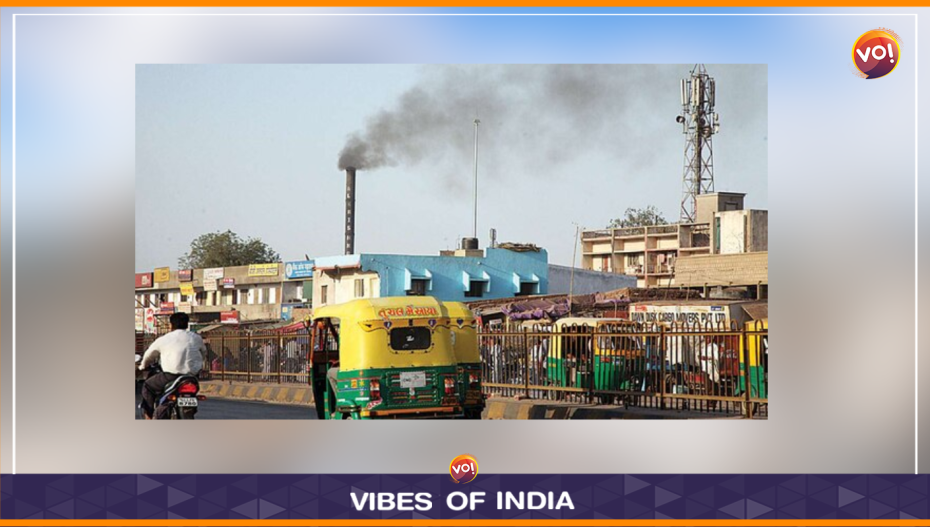Ahmedabad has become the second city in the country to implement an emission trading scheme (ETS) for particulate pollution, according to the Gujarat government.
This achievement will help the city regulate its industrial emissions and thus reduce the state’s pollution levels.
An ETS, or “cap-and-trade” system, caps the amount of pollution allowed from regulated industries and allots permits to plants.
Gujarat’s forest and environment minister Mulubhai Bera inaugurated the first uniform auction for the Ahmedabad ETS market, distributing pollution permits online to all participating industries.
“Gujarat has been a flagbearer of taking innovative initiatives to ensure a balance between economic development and environment preservation. The ETS for particulate matter (PM), the first in the world for PM emissions, is an example of the unique initiatives being taken by the government of Gujarat to contain its emissions,” the minister said.
The scheme empowers industries in the textile sector within the Narol and Vatva industrial clusters.
The ETS is implemented by the Gujarat Pollution Control Board (GPCB) with the technical expertise of professors from University of Chicago, University of Yale, University of Warwick along with the Abdul Latif Jameel Poverty Action Lab (J-PAL) and Energy Policy Institute Chicago. The trading platform has been developed by NCDEX e Markets Limited (NeML).
GPCB had chosen Surat as the pilot city for the project. Surat was an obvious choice because it is a densely-populated industrial centre and its textile and dyeing industries emit heavy pollution, making it the first city in India to have ETS implementation.
Under ETS, industries with low abatement costs can make larger reductions in emissions and thus profit by selling excess permits. Industries with high abatement costs can save money by buying permits instead of installing expensive equipment.
The “cap-and-trade” system, similar to ETS, was introduced by the United States in the 1980s to reduce emissions of pollutants like sulphur dioxide and nitrogen oxides (NOx).
“GPCB’s collaboration with leading research centers to introduce markets, backed by rigorous scientific research, has the potential to benefit the regulator, regulated and most importantly, the public,” according to Sanjeev Kumar, principal secretary, forests and environment.
ETS is an innovative market-based system with the potential to transform the trade-off between environmental quality and growth, improving air quality with lower costs of compliance to industry. In addition, the use of continuous emissions monitoring systems (CEMS) greatly improve the information and ability of regulators to monitor industry.
Before the ETS pilot went into effect in Surat, several plants were not complying with existing pollution regulations—bringing the amount of pollution emitted from the 158 plants that are part of the programme to 362 tons per month.
The ETS set a cap on emissions equivalent to the amount of pollution that would have been released if all plants had complied, which is about 280 tons per month, or a 29% reduction in pollution.
The scheme was first introduced in 350 highly polluting solid fuel burning industries in Surat in August 2019 with the goal of establishing a monitoring system for particulate emissions trading to regulate industrial pollution in the Surat area.
The industries under the scheme emitted 20% less particulate matter than the other industries.
Following the encouraging results from Surat, GPCB has decided to expand the scope of emissions trading to industries in Ahmedabad to tackle particulate emissions of industries in the City and Vatva regions.
Around 400 red category solid-fuel based industries have been identified to be a part of the ETS-PM project for Ahmedabad.
Also Read: Gujarat To See Another Jungle Safari, This Time In Una













